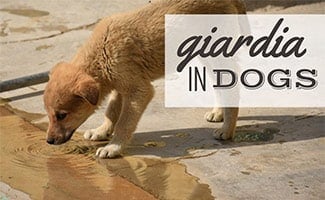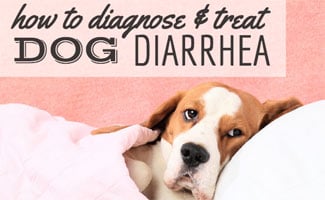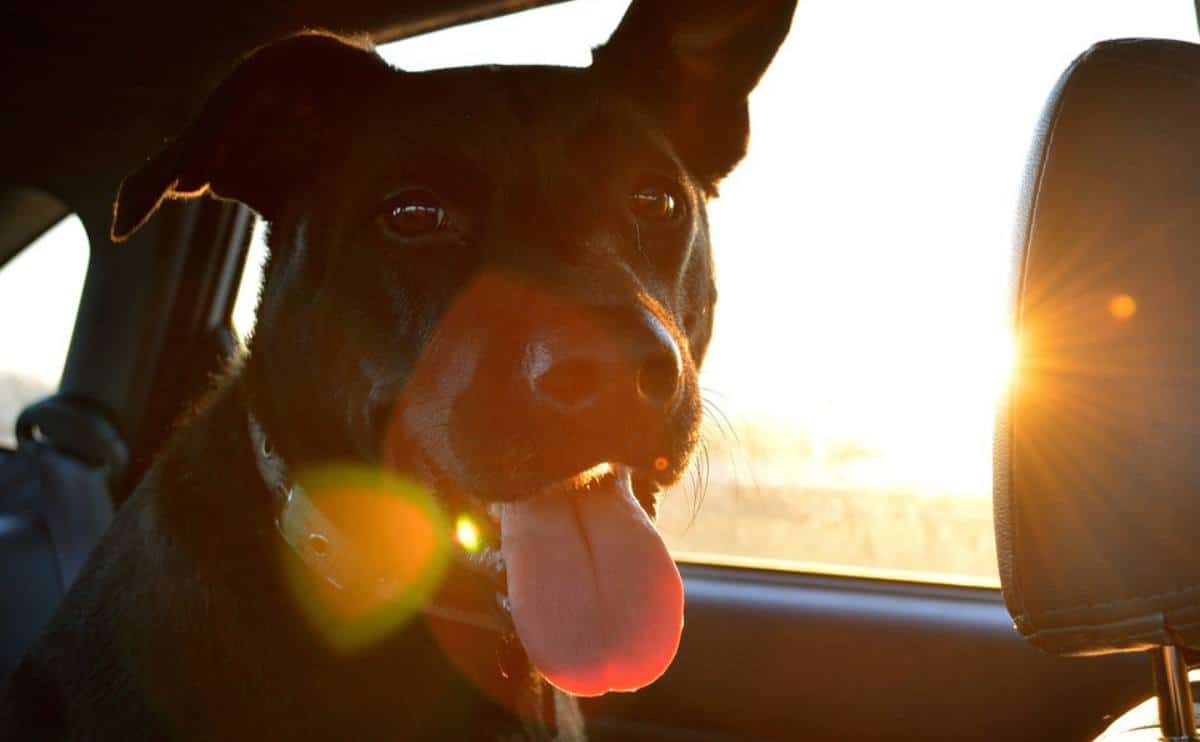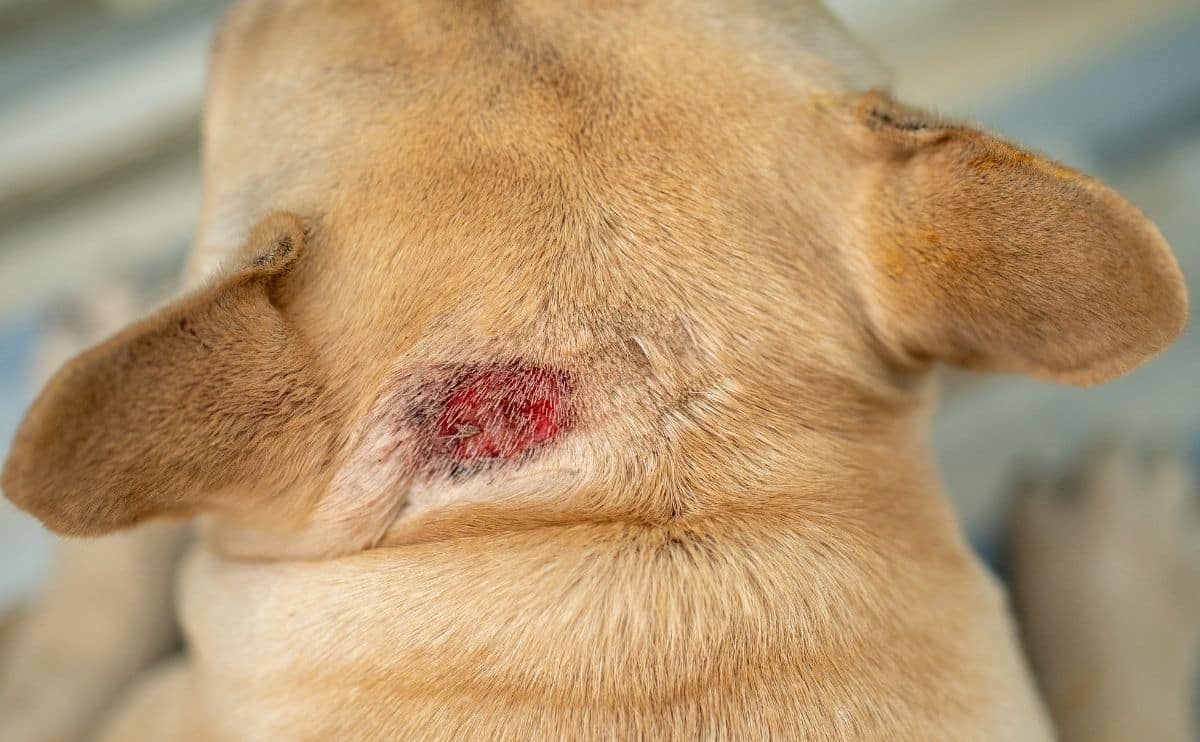Giardia In Dogs: Symptoms, Treatment, Prevention & More
When you purchase through links on our site, we may earn a commission. Here’s how it works.

When you’re out on a walk or hike with your dog, try not to let him drink from puddles or natural bodies of water. Why? He could pick up a disease-causing parasite called Giardia that loves to lurk in untreated water.
Table of Contents
What does Giardia do to a dog? And how do you know if your pup gets infected? It’s important to know the signs and get prompt vet care if your dog becomes ill.
What Is Giardia?
Giardia (pronounced jee-ahr-dee-uh) is a microscopic protozoan parasite that lives in the intestines of dogs, cats, humans, other mammals, birds and amphibians. An infection with Giardia is called giardiasis.
There are several subspecies of Giardia, each targeting a different group of animals. But each type has the same life cycle and transmits in the same manner.
The lifecycle of Giardia has two stages. The mature form, called a trophozoite, lives in the small intestine, where the organisms multiply and become cysts. Cysts are shed in the feces and are the infective form. Cysts are hardy and can survive for several months, especially in water and damp environments.
How Do Dogs Get Giardia?
Dogs can become infected with Giardia by drinking, eating, licking or even sniffing something that’s been contaminated with feces containing cysts. This can include puddles and other bodies of water, grass and plants, toys, bowls and many other sources.
Contaminated water is one of the most common sources because the cysts thrive in moist environments.
Giardiasis is particularly dangerous for puppies, dogs with compromised immune systems and senior dogs. So it’s advised to keep higher-risk dogs away from lakes and other water bodies and not let your pup drink from puddles.
Symptoms
A Giardia infection doesn’t always cause problems, especially in healthy adult dogs. But puppies and other high-risk dogs can develop the following symptoms.
- Diarrhea (can be intermittent or continual)
- Excess mucus in feces
- Gas
- Abdominal discomfort
- Vomiting (in some cases)
- Weight loss
- Dull coat
Diagnosis & Treatment
| Editor’s Pick |
 Panacure-C Panacure-C |
If you notice any of the above symptoms, especially diarrhea, you should take your dog to the vet. Diarrhea can cause severe dehydration and weight loss, so it’s important to get a proper diagnosis and treatment. Your vet will conduct some tests to confirm the presence of Giardia in your dog’s stool.
Usually, the best form of treatment is antibiotics and/or antiparasitic drugs your vet will prescribe for your pup. It usually takes 10-14 days of daily doses you give your pup at home to clear up the infection.
The most commonly prescribed medications for Giardia include:
- Metronidazole (most favorable, but not recommended in pregnancy)
- Panacur–C (also known as fenbendazole)
Tip: Whenever your dog has diarrhea, it’s important to keep him hydrated. Make sure he has plenty of water and electrolytes. Unflavored Pedialyte is safe for dogs, or you can give them Rebound, a dog and cat-friendly liquid formula that contains essential vitamins and minerals to help your pet recover from illness.
Prevention
Unfortunately, there’s no preventative medication you can give your dog to prevent him from getting a Giardia infection. But there are some measures you can take to help keep these parasites away.
 Don’t let your dog drink from puddles, lakes or other untreated bodies of water, especially if the water is stagnant.
Don’t let your dog drink from puddles, lakes or other untreated bodies of water, especially if the water is stagnant.- Clean up dog poop immediately. Find the best pooper scooper and poop bags here.
- Avoid areas where there’s a lot of dog feces on the ground.
- If you have to board your dog, make sure the kennel practices proper hygiene and keeps their crates, runs and yards free of feces.
Can Humans Get Giardia From Dogs?
Although your risk of contracting Giardia from your dog is low, it can happen in some cases. To prevent dog-to-human transmission, wash your hands after cleaning up your dog’s poop and giving your dog medication.
Most cases of Giardia in humans result from drinking contaminated water, not from our pets. Humans can also pick up Giardia from food and in the soil, so rinse all produce with water before eating and wash your hands after working with dirt. The most common symptom in humans is also diarrhea.
Personal Experience
Michelle, Co-Founder of Canine Journal, shares her own experience with Giardia.
When traveling in Central America, my husband and I were infected with tapeworm and Giardia. The symptoms were horrific and we would not have recovered well without a doctor. I would urge pet parents to take their dog in for an exam the minute they suspect either concern since both require medical attention, in my experience.
Worms In Dogs
Although Giardia isn’t a worm, many of the symptoms of giardiasis are very similar to parasitic worms. To learn more about common worms and other parasites, check out our comprehensive guide on worms in dogs. We cover symptoms, treatment and prevention for tapeworms, heartworms and many more.



